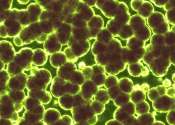Switching DNA functions on and off with light
DNA is the basis of life on earth. The function of DNA is to store all the genetic information an organism needs to develop, function and reproduce. It is essentially a biological instruction manual found in every cell. Biochemists ...









